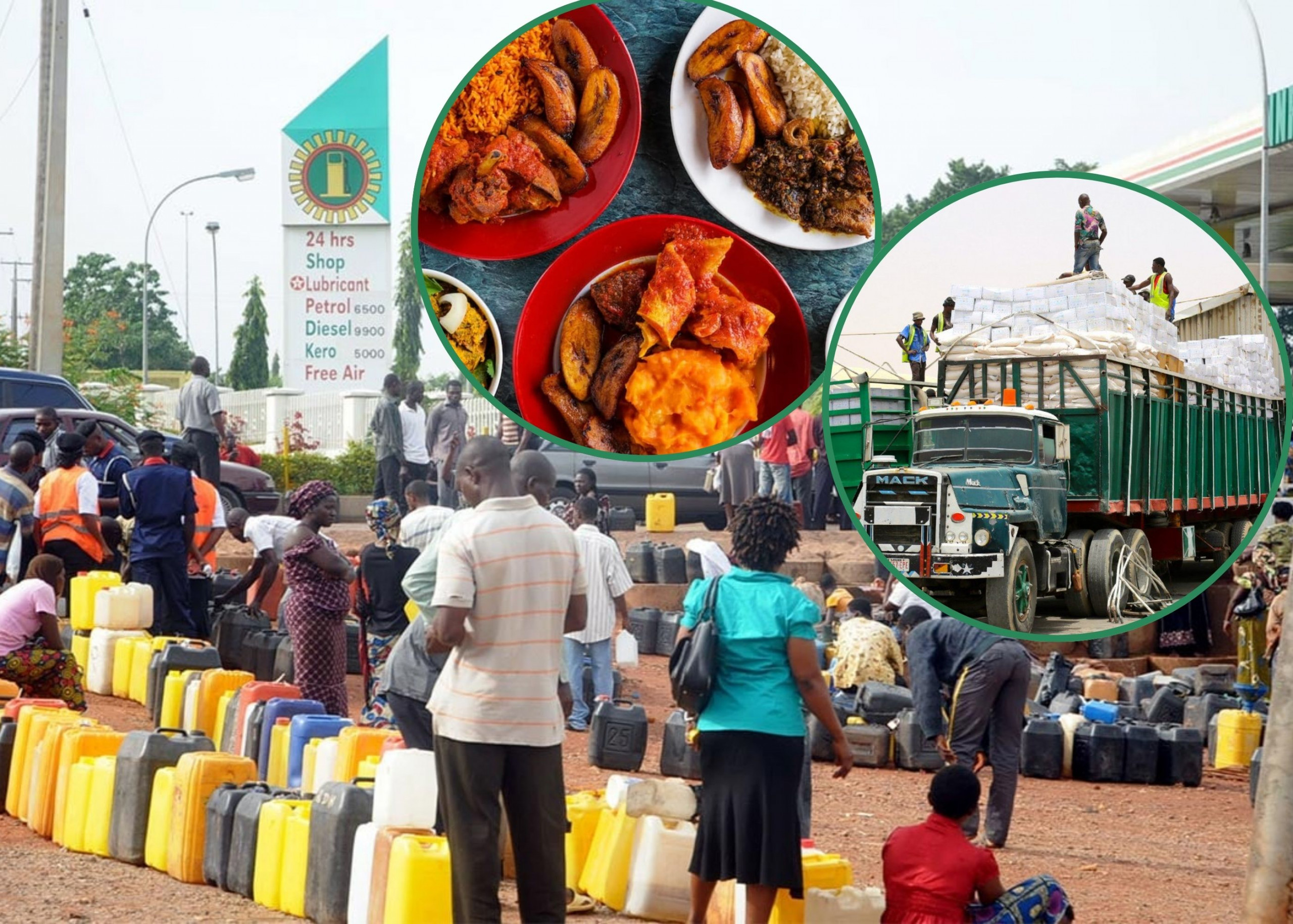News in Brief:
– Nigeria’s lingering fuel crisis impacts significantly on its food security.
– The increasing fuel cost has disrupted agricultural production and supply chains, threatening the nation’s ability to feed its growing population.
Nigeria, a major agricultural producer in Africa, is facing a growing threat to its food security due to a persistent fuel crisis. A recent hike in the price of Premium Motor Spirit (PMS) is already having a ripple effect on various sectors of the economy, particularly agriculture. This has led to concerns about the nation’s ability to feed its huge population.
The development comes on the heels of the Nigerian National Petroleum Corporation (NNPC) Ltd’s decision to raise the pump price of petrol by 40%, from ₦617 to ₦897 per litre. This increase has forced private fuel stations to adjust their fuel pumps accordingly, with some selling the commodity for as much as ₦1,000 or more per liter.
PMS is a critical input in the agricultural value chain, from transportation of inputs to processing and distribution of outputs. The increased cost of transportation has driven up the prices of agricultural goods, making them less affordable for consumers.
Remarkably, an increase of 25% to 50% has already been recorded in transportation and food costs nationwide. This has quickly eroded the momentary gains recorded in the past month in the lowering of food prices.
More food price hike predicted due to higher transportation costs
Consequently, experts predict that prices of staple food items like beans, tomatoes, pepper, and others will be impacted as they are dependent on haulage services to be distributed from mostly the agrarian Northern region to other parts of Nigeria.
According to David Ngwala, an agribusiness expert residing in Lagos, the cost of food items is projected to increase in the coming weeks.
“The decision of the government to hike fuel prices is definitely not in the overall interest of the citizens,” he stated. “This is especially so as transportation costs are a major determinant of food prices in the country. What will happen now is that in the coming weeks, food prices will witness a noticeable increase as traders will take advantage of the situation in maximising profit.”
Government’s food price reduction goals challenged
Also, Ngwala questions how the government hopes to achieve its goal of crashing food prices soon with the lingering situation. According to him, this is just merely ‘rhetoric’ as all the indices point to a depressing situation for Nigerian commuters and consumers in the foreseeable future.
“I read somewhere that government hopes to crash food prices in 180 days or so. How exactly are they going to achieve this, short of a miracle? All the talk about the suspension of duties for the importation of sime food commodities, and the importation of 500,000 metric tonnes of wheat and maize, is still dependent on cost-effective haulage or transportation system to get to the end consumer. The railways are moribund, and the promised rollout of CNG vehicles is yet to be fully actualised, so how can such a projection hold merit?”
It will be recalled that the country’s Minister of Agriculture, Senator Abubakar Kyari, had stated on his official X account that the administration has unveiled a series of strategic measures to address the high food prices currently affecting the nation.
According to the minister, these measures will be implemented over the next 180 days and include, 150-day duty-free import window for food commodities and suspension of duties, tariffs, and taxes for the importation of certain food commodities through land and sea borders. These commodities include maize, husked brown rice, wheat, and cowpeas.
Disruption of food supply chains
Essentially, the fuel crisis has disrupted the food supply chains in Nigeria. Transportation delays have led to spoilage of perishable agricultural products, resulting in significant losses for farmers and traders. This particular situation further fuels speculation over imminent hikes in food costs.
Additionally, the hike in the price of fuel has limited the ability of food processors and distributors to operate efficiently, affecting the availability of essential food items in the market.
The combination of reduced agricultural production (due to adverse climatic conditions) and disruptions in food supply chains poses a significant threat to Nigeria’s food security.
With the country’s growing population estimated at over 230 million, challenges posed by the fuel crisis have increased the risk of food shortages and price inflation. This translates to severe consequences for the most vulnerable segments of the population, especially women and children, and particularly those living in rural areas and urban slums.
Urgent measures needed
Meanwhile, as Nigerians continue to grapple with the high cost of living associated with inflation, some analysts have called on the government to effect necessary measures to cushion the effects on the common populace.
Mrs. Esther Nzekwe, a nutritionist and dietician in the FESTAC area of Lagos, has appealed to the relevant authorities to look into the situation as a matter of urgency to forestall growing incidences of malnutrition in the country. She noted a dismal drop in clientele over their inability to afford recommended nutritional guidance due to the high cost of living currently.
According to the dietician, to address the looming food security crisis, the Nigerian government must take urgent measures to mitigate the impact of the fuel crisis on food security. Nzekwe opines that cases of malnourishment will rise as families are having to significantly reduce food and grocery spending, leaving out essential nutrients in their diets consequently.
Meantime, suggestions have been made in certain quarters for government to improve fuel distribution, invest in infrastructure including upgrading roads and railways, as well as the promotion of sustainable agriculture as a means to deal with a deteriorating food security situation in the country.



